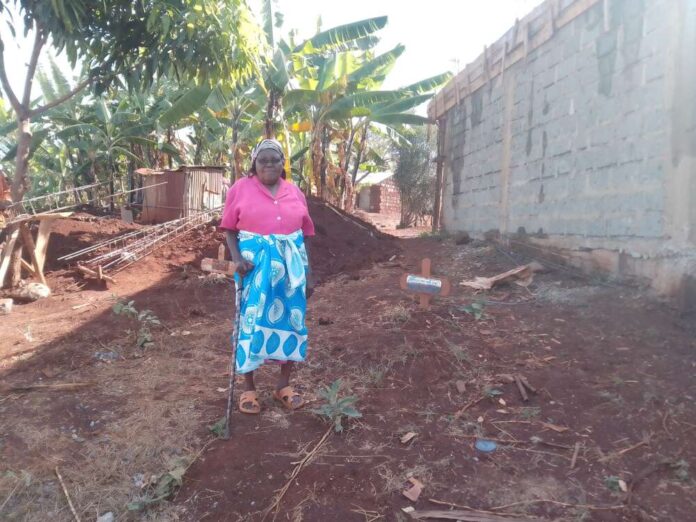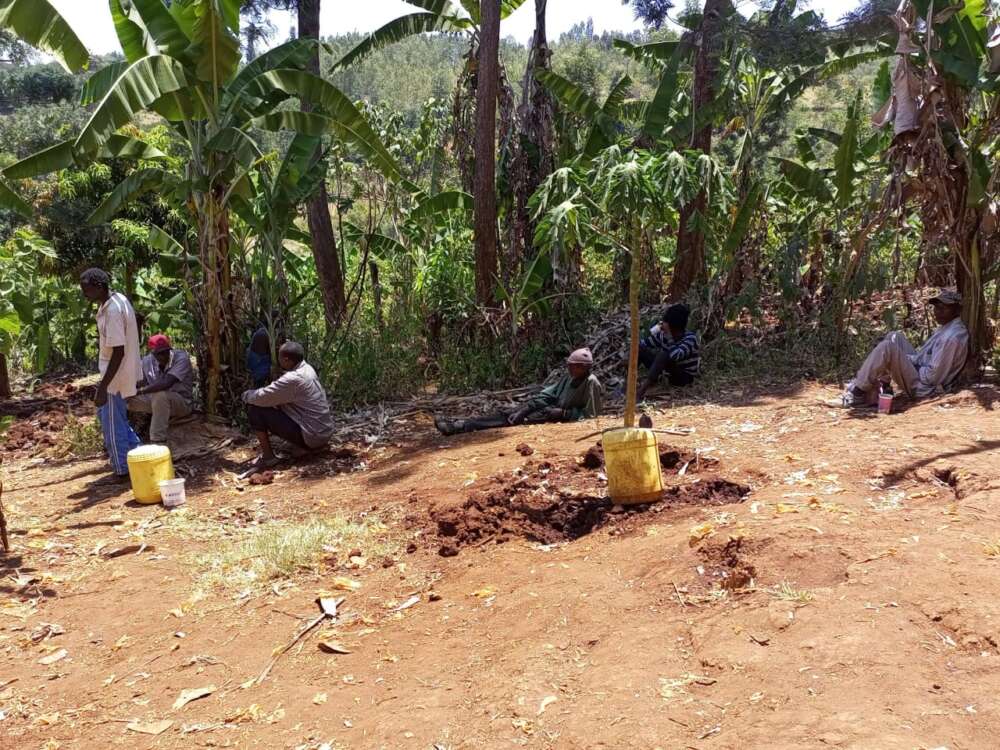
By Rebecca Wangari, DevReporter, Murang’a County

Key Highlights
- Lives have been lost and others developed various health complications because of alcohol menace.
- The government has, on various occasions, promised to eradicate illicit brews by conducting crackdowns.
- Several programmes geared towards empowering the youth have been proposed.
For close to three decades, alcoholism has been a thorn in the flesh of residents in the central Kenya region. Almost every family has been affected directly or indirectly by this menace, which has wreaked havoc in the region.
In several instances, deaths have been reported after people consume lethal liquor, and others suffer several health issues.
Lost Eight Children
In Kongoini village, Kiharu constituency, Murang’a County, we meet an 86-year-old woman, Mary Njeri, who has lost eight of her children to alcoholism. The children started taking alcohol from a tender age and died after developing health complications due to excessive drinking.
She was hopeful that after raising her children, they would be the ones to look after her in old age, but now, this is not going to happen.
Anne Njeri says that her sons sold at throwaway price, the parcels of land she had given them as part of their inheritance, spending all the money on alcohol.
Killer Brew
“None of them had a family, and their lives just wasted away. The graves are the only memories I have of them,” Ann said.
She feels the government has failed to eradicate illicit brews, which are ruining the lives of young people. She suggests that more stringent measures should be taken to curb the menace.
Every morning she wakes up to a sight of eight graves right behind her house, and this brings tears to her eyes.
She says that on several occasions, she has contemplated committing suicide as the pain is unbearable for her.
“Suicidal thoughts have crossed my mind several times when I look at the graves of my children who should be taking care of me.”
“None of them had a family because they could not put their lives in order, and this cuts off the family lineage,” she added.

Past three Decades
John Mwangi, another victim of alcoholism, says that he has been drinking alcohol for the past three decades.
What started as a luxury gradually developed into addiction, and he could barely do anything without taking alcohol.
Mwangi, who is a businessman, says that he had to get a daily allocation of KSh. 3,000, which he would spend on alcohol.
“One of the greatest mistakes I made was to sell a property in Nairobi for KSh. 800,000 and spend all the money on alcohol,” he narrates.
“I came to the rehab centre on my own will because I want to quit drinking and lead a sober life,” he remarked.
While the majority of those indulging in alcohol are men, women are also struggling with addiction, which is now turning their lives upside down.

Hope for Recovery
Jemima Maina, 35, says she started drinking immediately after completing Form Four.
Having been brought up in a Christian family, she was under strict parenting and had minimal exposure to alcohol.
However, teaming up with her peers saw her get into alcoholism and she could not even complete her course in college.
She says a daughter she bore was taken away from her by her family members who saw that she could not take care of her.
Later, she had another child whom she used to carry on her back to the drinking dens. Many times, they would spend the night drinking and the brewer used to feed the baby for her.
“People used to carry me and my child on a wheelbarrow to my father’s compound when they found us lying by the roadside because I could barely walk,” she narrates.
Jemima, who is also in a rehabilitation centre, says that she hopes to recover from addiction and be able to pursue her life goals.
Mental Health
Moses Kimenchu, an addiction counselor and a champion of mental health, says that addiction is a chronic relapsing mental disease, characterised by compulsive use of drugs such as alcohol, bhang, cocaine, among others.
Kimenchu, who runs Sergeant Savior Mentorship Empowerment and Counseling Centre, says that with proper rehabilitation, addiction victims are able to recover and get a new lease of life.
Abuse of alcohol and drugs, he says, has a direct impact on one’s mental status, affecting their way of doing things.
For one to recover, they have to go for rehabilitation, which takes at least three months. However, this does not guarantee full recovery from addiction.
“Addiction is a mental disease, but people do not understand it in this manner. Families have been ruined and careers destroyed,” he said.
“Others still believe that being addicted to alcohol is a curse or witchcraft, which is not the case,” he added.
Strained relationships, joblessness, rejection from family members, and low self-esteem are some of the reasons that drive people to alcoholism.
Engaging the Youth
In Murang’a, Governor Irungu Kang’ata has initiated a programme dubbed Murang’a Youth Service, which seeks to engage the youth in casual jobs, and this will help reduce the idle time, which they then spend indulging in alcohol.
Kang’ata points out that one of the contributing factors to excessive alcohol consumption is joblessness, and thus, this programme comes in handy.
The Murang’a Youth Service programme is crafted to be rotational, where the youth will be engaged in casual jobs for two months, and thereafter, go for vocational training. This will enable them to gain skills to make them self-reliant.





